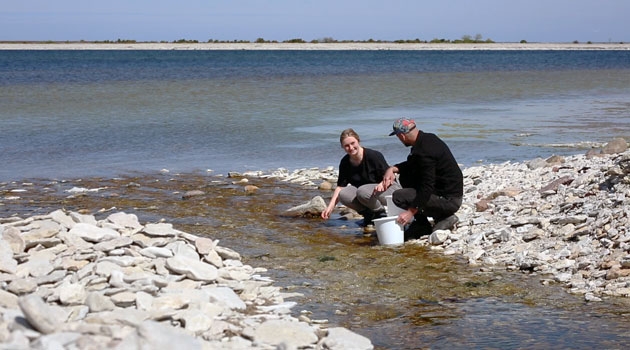Research to save the Baltic cod
At the Ar Research Station in northern Gotland, a number of researchers and doctoral students are currently working on a pilot project to improve the situation for the Baltic cod.
ReCod is a collaboration between Uppsala University and Baltic Waters 2030 that is attempting to see if it’s possible to return cod to the Baltic Sea.
The main objective is to see if it’s possible to catch cod, breed them in captivity and then release them as cod larvae to see whether this helps cod stocks in the Baltic Sea, says Gunilla Rosenqvist, professor and director of Ar Research Station.
In the research station there are a hundred or so Baltic cod that have just begun to mate.
– We’re going to release millions of larvae per year, and then hope that they can survive, because in the egg stage usually right now in nature they’re going to die real quick so we think if we just skip that part and bring them to larvae stage already that we can be successful with this, says Neele Schmidt, PhD student at the Department of Ecology and Genetics.
Annica Hulth

